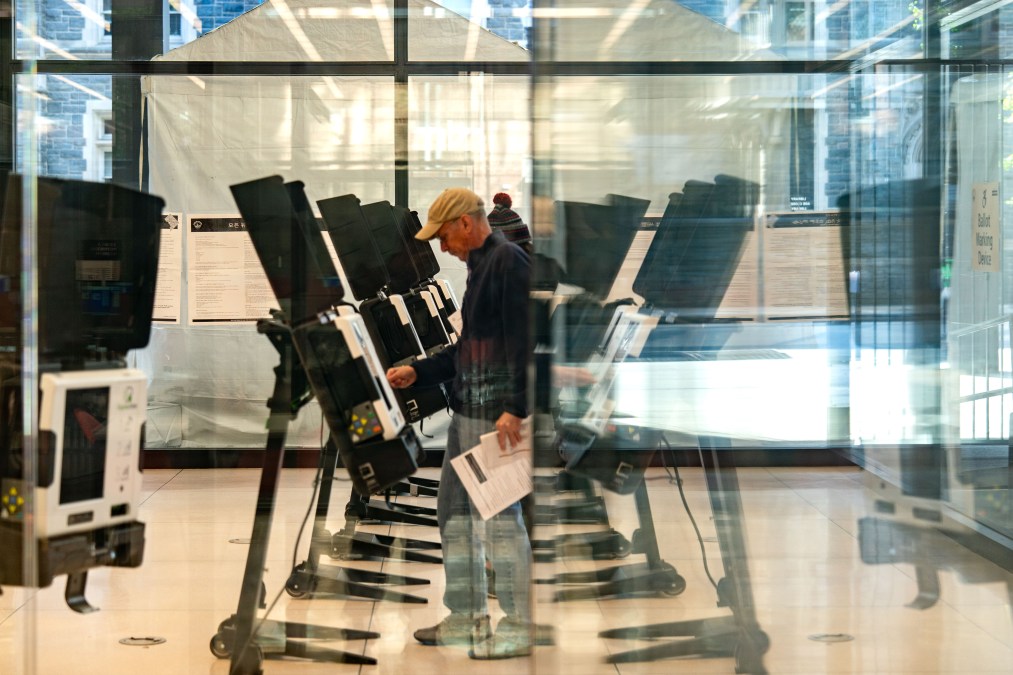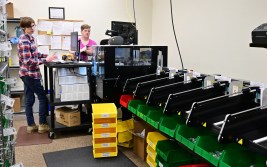False bomb threats at polling sites only blemish on Election Day voting process

Election officials and federal authorities have spent a considerable amount of time over the past few weeks debunking fake or false media regarding the integrity of U.S. elections.
Election Day has been a continuation of that trend, as federal, state and local election officials in swing states have attempted to stay on top of the routine kind of errors or glitches that happen every election cycle, while pushing back on egregious lies or misrepresentations being spread online by bad actors.
The most serious news of the day was in swing-state Georgia, where state officials called out yet another alleged Russian-led effort to disrupt the voting process, this time through bomb threats.
In a statement, the Fulton County Police Department said it responded to multiple bomb threats at polling places, resulting in temporary closings of at least two polling locations in Union City, while the county’s Department of Registration and Elections will seek a court order to keep those locations open to voters and make up the lost time.
Secretary of State Brad Raffensperger claimed that the bomb threats came from Russia, marking the second time in a week that he alleged Russian involvement in election-related disinformation ahead of federal law enforcement and intelligence agencies.
But the FBI quickly moved to back up those claims, saying in a statement Tuesday that the bureau was “aware of bomb threats to polling locations in several states, many of which appear to originate from Russian email domains.”
“None of the threats have been determined to be credible thus far,” the FBI said.
Cait Conley, senior advisor and election security lead at the Cybersecurity and Infrastructure Security Agency, said CISA is in contact with officials in Georgia over the incident but referred questions around attribution to the FBI.
Separately, the Department of Justice announced that a 25-year-old Georgia poll worker was arrested and charged with mailing a threatening letter to his own colleagues, including a bomb threat.
According to the DOJ, Nicholas Wimbish of Milledgeville, Ga., was working at the Jones County Elections Office on Oct. 16 when he had an alleged, unspecified altercation with a voter.
Authorities said the next day, Wimbish mailed a letter to the office posing as a “Jones County Voter” complaining about his own conduct, saying he and other pollworkers “should look over their shoulder,” that he would “rage rape” women and that a “boom toy” was headed for “early vote place.”
Wimbish has been charged with mailing a bomb threat, conveying false information about a bomb threat, mailing a threatening letter, and making false statements to the FBI.
Damon Hewitt, president and executive director of the Lawyers’ Committee for Civil Rights Under Law, told reporters that the Election Day bomb threats do not appear to be genuine.
“There have been a couple of evaluations of polling sites, but there have been no credible threats. Voting is safe today all through Georgia, as far as we have heard,” Hewitt said on a press call Tuesday.
Michigan Attorney General Dana Nessel told CNN that polling locations in her state have also been the target of threats, but “none of the threats have been deemed credible.”Similar threats were made in Duval County, Fla., according to The Tributary, a local news site.






